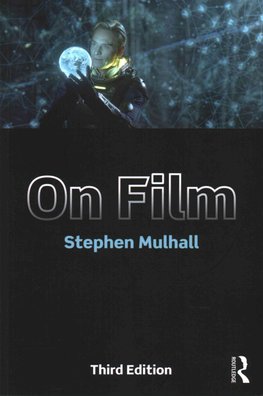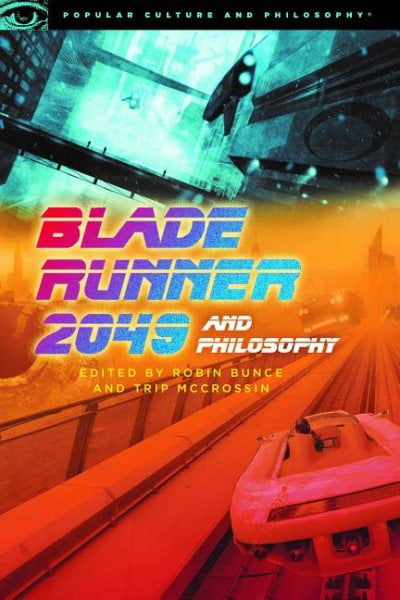
SPOILER ALERT: before getting down to business, if you are reading this and haven’t seen one or both of the two Blade Runner movies, this discussion may not be for you right now, as it is simply inevitable that major plot details that you might not care to know about in advance are going to be given away. You have been warned.
Secondly, the primary motivation for writing this post is because I am a fan of the first movie and have been ever since it was released. The director Guillermo Del Toro once likened Blade Runner to a cinematic drug because the experience of viewing it was so immersive, while Mark Romanek says that he saw the movie and wanted to live there in that world, and that afterwards he started to decorate and light his own apartment to make it look more like the film. While I certainly wouldn’t go that far, these are responses that I can still relate to.
Lastly, if you are a student of the Edexcel A Level Religious Studies course you are required to assess the impact of Liberation Theology (and Black and Feminist Theology) on the lives of believers and communities in Christianity today. So there should be something here for you as this brief article advances the idea that theological ideas are alive and well and subtly influencing the wider, secular world through mediums like film and TV. Note that some of the points made below are taken from the Edexcel course notes on Liberation Theology that are also available on this site.
Moving straight on, the next thing that I want to mention, by way of introduction, is to state why I think it is worth devoting time to a discussion of these particular movies.
Firstly, to the extent that movies can philosophise – and the Oxford philosopher Stephen Mulhall’s book On Film is the one to go for if you wish to get into the issue of how cinema might function as a philosophical medium – it’s because Blade Runner and BR2049 are both widely acknowledged to have done so.

As Timothy Shanahan has stated, specific scenes within the original 1982 film can inspire reflection on what he calls ‘a range of perennial philosophical issues…including human nature, personhood, identity, consciousness, freedom, morality, God, death, and the meaning of life.’ Meanwhile, the Cambridge based historian of ideas Robin Bunce, has commented in relation to the sequel, that lurking ‘underneath the simplicity of the plot’ are questions of what he calls ‘mindbending philosophical complexity: what does it mean to be human? Can we trust our memories? How can we truly know what we are?’

Blade Runner 2049 is not, though, a movie that cinema audiences might readily associate with any kind of theological movement. But in a world where we have recently seen the emergence of many right and far-right leaning political leaders, and in which migrant workers at the bottom of the economic pile are resented and exploited, it does speak to our own times. It is clear, for example, that the ‘replicants’ or artificial humans in both Blade Runner movies are a despised underclass potentially in need of some kind of liberation. And the manner in which their predicament is portrayed in these films has distinctive theological resonances.
For example, when it comes to the Bible, supporters of Liberation Theology frequently refer to the Exodus narrative and its accompanying miracles, taking solace and reassurance from the message that God is on the side of the crushed and tyrannized. Appeals are also made to a teaching of Jesus in Luke’s gospel, itself an echo of a passage in Isaiah about setting free the oppressed.
Similarly, Blade Runner 2049 begins with an appeal to the miraculous, a child conceived from a replicant mother who should be barren. So here we perhaps have an allusion to the Virgin Birth. And the plotline thereafter continues to focus on the hopes that are invested in this child through the underground, clandestine movement led by Freysa. What is particularly interesting about this is the revelation that Rachael had a daughter rather than a son, someone who Freysa wishes to enlist as a Messiah for her replicant resistance organisation. Here, there are resonances with Feminist Theology. Plus, all this follows on from an earlier film in which one of the artificial humans or replicants, Roy Batty, is portrayed with a nail through one hand and clutching a dove in the other. In just a brief moment he is going to save the spiritually fallen Blade Runner Rick Deckard from literally plunging to his death.
Note the classic Trinitarian symbolism on display here (shown on the cover of Timothy Shanahan’s book below): the nail is emblematic of Batty’s status as an ambiguously Messianic figure, and the dove is a well-known symbol of the Holy Spirit. Shortly, that dove is going to ascend into the sky, flying upwards in the putative direction of heaven.

Why these two Blade Runner movies follow a trajectory that draws on religious symbolism might be because of the fate that has befallen socialism in recent times. What has happened is that capitalism is now frequently presented as the only viable economic system, given that Marxism has lost so much credibility in the wake of the collapse of the Soviet Union and the dilution of Communism in China. According to the late Mark Fisher (a blogger known as K-Punk who also taught Philosophy and Religious Studies in a sixth form college), the quotation “it is easier to imagine an end to the world than an end to capitalism” encompasses the present state of affairs.

In his global history of ethics The Quest for a Moral Compass, Kenan Malik also makes the same point, observing that:
‘By 2008…the possibility of change, at least in the way that Marx would have understood it had become negligibly small. The depth of the economic crisis led to talk of ‘a crisis of capitalism’. And yet there was no political challenge to capitalism. Worker’s organisations had been destroyed, the left had imploded, as had the idea that there could be an alternative to the market system. The resurrection of Marx challenged none of this. Those who turn to Marx these days look upon him not as a prophet of capitalism’s demise but as a poet of its moral corruption.’
In the present world, supporters of Liberation Theology might therefore be regarded as lone voices crying out in the wilderness.
It is notable that Liberation Theology initially came under attack from conservatives within the Catholic Church. In 1979, for example, Pope John Paul II cautioned against seeing Christ as a revolutionary figure, while in 1983 the Congregation for the Doctrine of the faith criticised the theology as Marxist.
However, on the 3 February 2015. Pope Francis actually asked Gustavo Gutierrez to be a keynote speaker at a Vatican event in 2015, a not altogether surprising development given the Pope’s Argentinian background.
Pope Francis has also condemned ‘the idolatry of money’ (a reference to the second commandment – ‘You shall not make for yourself an idol, whether in the form of anything that is in heaven above or that is on the earth beneath’). Commenting on rising inequality in many societies – the gap that exists between the rich and the poor – he has also condemned the policy followed by many governments of not interfering with the way that businesses operate. This in turn led Rush Limbaugh, then America’s most famous radio talk-show host, to accuse the Pope of ‘pure Marxism.’
Although Liberation Theology has not resulted in socialist governments becoming firmly established throughout Latin America, the movement has arguably drawn attention to the deficiencies of capitalism, a point which is relevant to everyone living after the 2008 financial crash in the so-called ‘age of austerity’.
Interestingly, this point has not been lost on several modern philosophers (Slavoj Zizek, Alain Badiou and Terry Eagleton), who in different ways seem to be drawing on theology in an attempt to revivify socialism in some of their publications, like the one below.

In reply to a private e-mail enquiry I sent him, one eminent teacher of Philosophy and Theology at a UK university put it this way:
“You are right to detect a strange shift – radical European philosophers drawing on Christian ideas to critique capitalism. This has opened up new ground – there have always been Christian critiques of capitalism, but it now seems possible to work on neutral philosophical ground, engaging with secular thinkers.”
So for those who are concerned about hypercapitalism and the effects that its ubiquity is having on us, the message of the Blade Runner movies is that maybe we could all benefit from a bit of Liberation Theology.